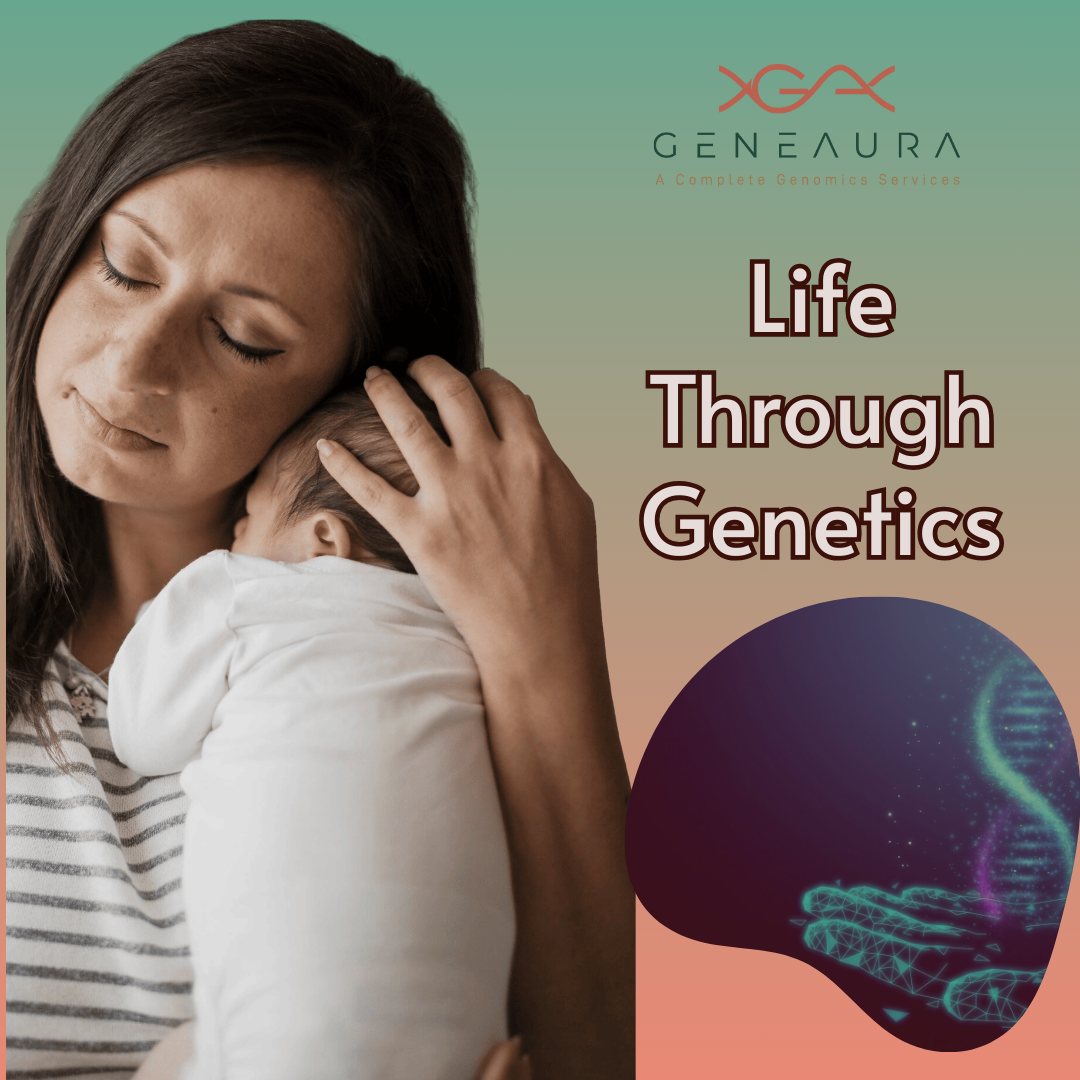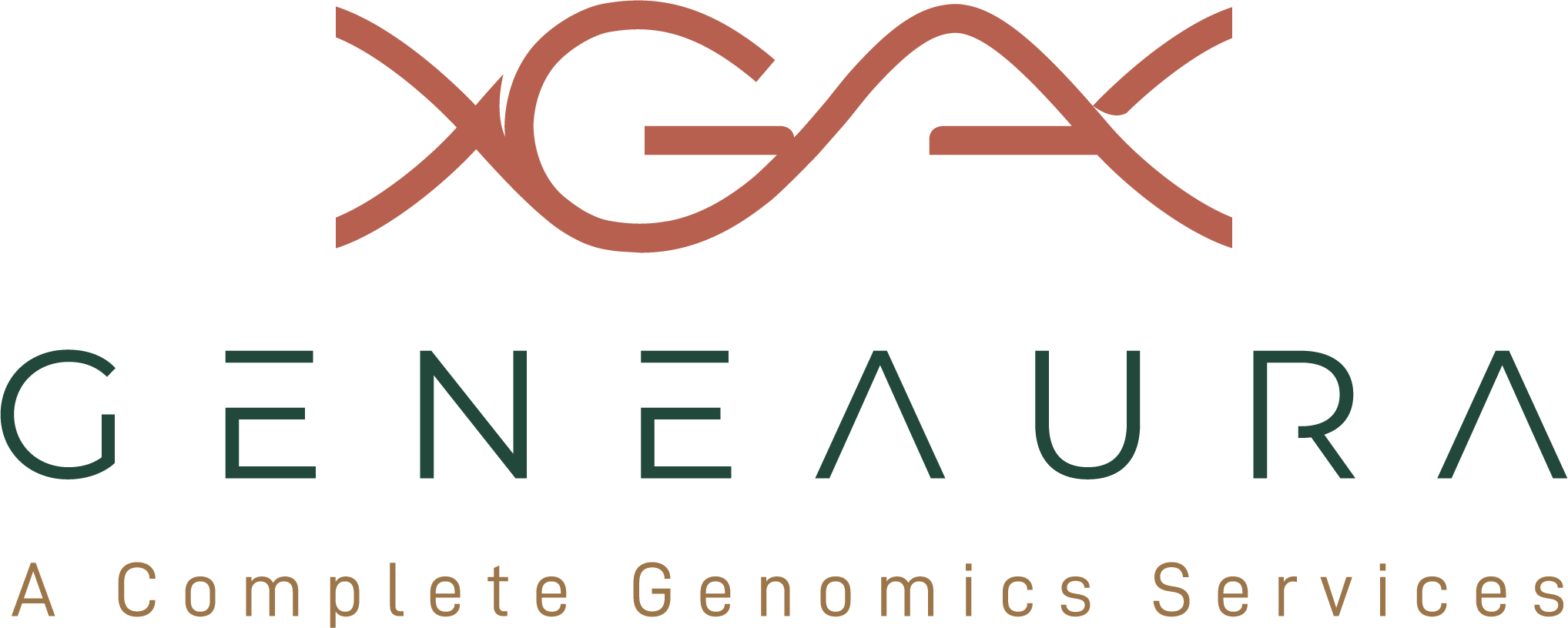





Reproductive Genomics
Reproductive genetic counseling helps potential parents and their physicians understand and assess the risk of having a child with a genetic condition.
Common reasons for referral to a reproductive genetic counselor include:
- Advanced maternal or paternal age.
- Abnormal prenatal soft markers or USG finding.
- Recurrent Pregnancy Loss or Miscarriage.
- Personal or family history of a genetic disorder.
- Personal or family history of a structural or psychological birth defect.
- Teratogen Exposure.
- Interest in pursuing routine carrier testing for common genetic disorders.
- Interpretation of Abnormal Non-Invasive Prenatal Screening (NIPS).
Karyotyping is the first line genetic screening for major cases like Recurrent Pregnancy Loss, unexplained Infertility, Down’s Syndrome etc. Please talk to our GC to find out if you will benefit from this test.
This test will help identify whether the couple has the genetic compatibility for conceiving and giving birth to a healthy baby. When Couple karyotype fails to provide any answers to the infertility, this test may be performed. It is highly recommended to see a GC before opting for this test.
The infertility panels are more specific to address the problems of any individual with infertility issues. Sometimes the infertility can be resolved by simple hormone supplements and to identify this a panel testing can done after consulting with your clinician and our GC.We offer
- Male Infertility Panels
- Female Infertility Panels
- When IVF patients undergo recurrent failures or abortions this test may be suggested after talking to our GC.
- When there is a known geentic disorder in the family, this test can be recommended after a deatiled discussion with our genetic counselor and family work-up.
When IVF patient undergo recurrent implantation failure, this test may be performed to identify an appropriate window of implantation for Embryo Transfer.
Prenatal/Fetal Genomics
Identifying the genetic makeup of your fetus can benefit you to make better decisions for the mother and the growing baby. But what options are available at each stage, and where can genomics make a difference?
To know more about that speak to our genetic counselor.
You will benefit by talking to our genetic counselors when your,
Gynaecologist wanted you to meet a genetic counsellor
Abnormality found in scan
Previous history of abnormal pregnancy
History of Miscarriage
Child with a genetic disorder
Non Invasive Prenatal Screening is offered to every women who is of advanced maternal age and to those who have got high risk reports from a double / triple serum marker test.
These conditions are commonly seen on a fetal scan report. Kindly consult your clinician and talk to our genetic counselors to know whether further screening or testing are required.
The anomalies observed during a scan or the high risk reported from a NIPS test needs to be reconfirmed. Kindly talk to our genetic counselors to understand the screening and take informed decisions for your family.
New Born Screening
This test allows early detection of certain conditions at birth. This can aid the child in leading a healthy, normal life. Certain inborn errors of metabolism, genetic disorders, hormone-related issues, and certain developmental problems are detected using this test. A simple blood test is done which involves collecting a few drops of blood from the baby’s heel. The blood is then sent for analysis. Disorders that can be screened by the newborn screening panel are cystic fibrosis, β- thalassemia, sickle cell disease, maple syrup urine syndrome, etc. Recommended for newborn babies, screening is performed between 48 hours to 13 days old. However, screening can be performed up to the age of 2.
Oncogenomics
Cancer is commonly inherited. A genetic counselling session would help you understand the risk of cancer development in an individual based on their family history. Also Screening for cancer early and enabling an early intervention makes most of the cancer curable. Talk to our genetic counselors now to screen for your risk of cancer.
Solid Tumors
Some cancers respond differently to various cancer therapies. Understanding the genetic makeup of the cancer cells would enable the physicians to identify the most suited drug or method for cancer therapy. This personalised treatment based on your genetic markers will improve the cancer survival rate.
Somatic mutation gene panel tests cover a wide range of mutations and genes associated with various kinds of cancer affecting different organs. For this panel test, the coding region of the 56 cancer-related genes is sequenced by hi-tech sequencing technology like Next-Generation Sequencing (NGS).
- Somatic Cancer Hotspot Panel
- Somatic Cancer Focus Assay
- Somatic Breast Cancer Theranostic Hotspot Panel (4 genes)
- Non- Small Cell Lung Cancer (NSCLC) Hotspot Panel (8 genes)
- Lung Hotspot and Fusion assay
- Breast Cancer Hotspot
Liquid Biopsy
Liquid biopsies are a safe and minimally invasive technique of obtaining tumor material. The cell-free DNA shed from the tumor into the circulating bloodstream is drawn for further analysis regarding the diagnosis, prognosis, drug response, recurrence rate risk of cancer. cfDNA assays also prove useful in detecting resistance mutations to tyrosine kinase inhibitors.
Hereditary Cancer
It is an inherited disorder. Individuals of this kind possess a higher-than-normal risk for certain cancers. Hereditary cancers occur when the mutated genes are passed across generations. In hereditary cancer, certain patterns of cancer are usually seen within the family.
Signs suggesting hereditary cancer include:
- Two or more relatives with the same type of cancer, on the same side of the family.
- Several generations affected
- Early ages of cancer diagnosis
- Having two or more types of cancer occurring in the same relative
Types of tests available:
- Comprehensive Hereditary Cancer panel (134 genes)
- Hereditary Breast Cancer test
- Hereditary colon cancer panel.
- Other panels specific to the type of cancer syndrome.
Ocular Genomics
The eye is the second individual organ to have a high frequency of involvement in genetic disorders. Worldwide, one in 1000 people get affected by Genetic Eye Disease (GED). There are more than 500 specific Mendelian genetic eye disorders. Genetic etiology is the reason behind almost 50% of the pediatric blindness. GED being one of the leading causes of blindness, affects individuals of all ages and encompass a broad spectrum of disease including developmental eye defects, corneal and retinal dystrophies and hereditary optic neuropathies (both nonsyndromic and syndromic forms). These rare diseases can affect all parts of the eye including the adnexa, ocular muscles, anterior chamber and posterior segment. They can be isolated, only affecting the eye, or found in association with systemic features, forming part of a syndrome. In developed countries, Inherited eye diseases (IED) are one of the most common causes for childhood and young adulthood blindness.
Genetic testing and counseling have become an integral part of patient care as they play an important role in helping patients understand the transmission of IED, the means of preventing it and the possibility of gene therapy in some cases. Identifying the disease-causing variant not only illuminates or confirms a diagnosis but it also improves medical management by informing prognosis, reduces the need for additional electrophysiologic testing, provides guidance in ocular surveillance and recommends appropriate changes in therapies and/or supplementation.
Common indications for referral to a genetic counselor and genetic testing are:
- Individuals with the symptoms of an eye disorder
- Individuals presenting a standard preliminary test showing the possibility of an eye disorder
- Individuals with a positive family history
- Individuals without any positive family history but with individuals in the family showing symptoms resembling a specific disease condition
- Prenatal testing is recommended only in families with affected individuals
To know more and to identify your genetic risk make an appointment with our genetic counselors.
Cardiovascular Genomics
Cardiovascular genomics is the branch that helps people identify the contribution of genes in any particular cardiovascular disease. Inherited cardiovascular disease is a complex condition that can affect most family members and is associated with an increased risk for sudden cardiac death. Identifying inherited monogenic cardiovascular disease in a patient confers a 50% risk for immediate relatives to be predisposed to the same disease.
Genetic diagnosis provides the opportunity for early identification and treatment of an inherited cardiac disease in family members helping them prevent complications. Additionally, genetic knowledge helps improvise lifestyle choices, including physical activity management and more precise recommendations for lipid and blood pressure management that contribute to risk reduction and personalised medical decisions. Genetic testing aids in the clinical management of various inherited cardiovascular diseases such as cardiomyopathies, arrhythmic disorders, thoracic aortic aneurysms and dissections and familial hypercholesterolemia.
Common indications for referral to a genetic counselor and genetic testing are:
- Unexplained sudden death, sudden infant death syndrome
- Known familial mutation for cardiovascular condition
- Congenital heart disease including coronary artery disease- early-onset and/or familial and Familial hypercholesterolemia
- Sudden cardiac arrest and/or idiopathic ventricular fibrillation
- Inherited Arrhythmias
- Cardiomyopathies
- Conditions affecting the aorta and other blood vessels
- Idiopathic or Familial pulmonary arterial hypertension
To know more and to identify your genetic risk make an appointment with our genetic counselors.
Inborn Errors of Metabolism
In born errors of metabolism(IEM) is a group of rare genetic disorders wherein a genetic mutation contributes to the loss of function of a single enzyme that results into abnormal metabolites affecting the normal protein,carbohydrate and other metabolism.
IEM is usually diagnosed at birth and with proper treatment most IEM can be managed.
If you identify the following or having a relative with IEM please visit a Genetic counsellor:
- Poor and/or intolerance to feeding
- Failure to thrive
- Seizures, vomiting, Irritability
- Irregular breathing patterns and movements etc..
To know more information and clarity on IEM and its diagnostic approach, fix a counseling session with our genetic counselor!
Neurological Disorders
Neurological disorders affect the brain, Spine and the nerves. The symptoms can usually be observed by abnormalities in the structure, biochemical and/or electrical impulses.
The Symptoms range from mild to severe like:
- Dementia
- Stroke
- Frequent nerve pain
- Rigid movements
- Speech or writing changes and much more.
Genetic testing can help diagnose a particular disorder of the nevous system and manage it. Testing an affected individual also helps other family members to be informed about the condition and take management and early detection steps accordingly.
Neurological disorders like Alzheimer’s, Parkinson’s,Ataxia,Neurofibromas etc.. can be quite alarming. Our genetic counselors has the ability to take the best decision and help you manage. Fix up an appointment and get yourself tested if needed!
Mitochondrial Disorders
Mitochondrial disorders affect the mitochondrial DNA(mtDNA), thus impairing the mitochondria’s function. Unlike Other types of genetic disorders mitochondrial genetic disorders doesn’t follow the mendelian pattern of inheritance and the inheritance is known as mitochondrial inheritance.
For a mother harbouring mitochondrial disorder all her children will be affected by the same. Appropriate medical investigations and accurate genetic testing help guide for therapy and management.
Noticing symptoms like sudden vision loss,optic neuropathy,myopathy, fanconi syndrome,hearing loss and/or physician suspected mitochondrial disorder from medical tests? Attend a genetic counseling session with our experienced genetic counselor to get yourself or your child diagnose d.
How it works

CONSULT

TEST

MANAGE
Request for a Genetic Test


